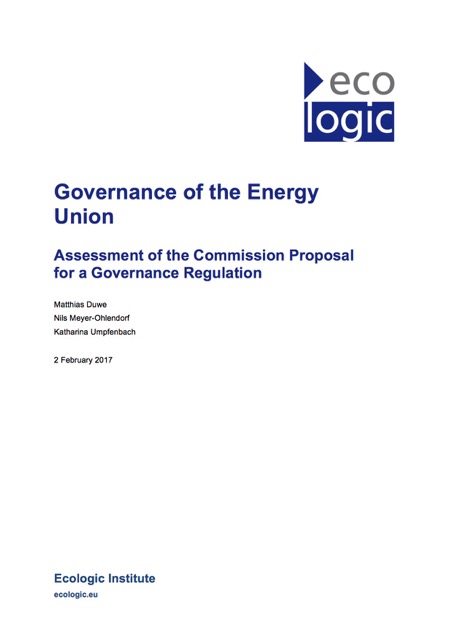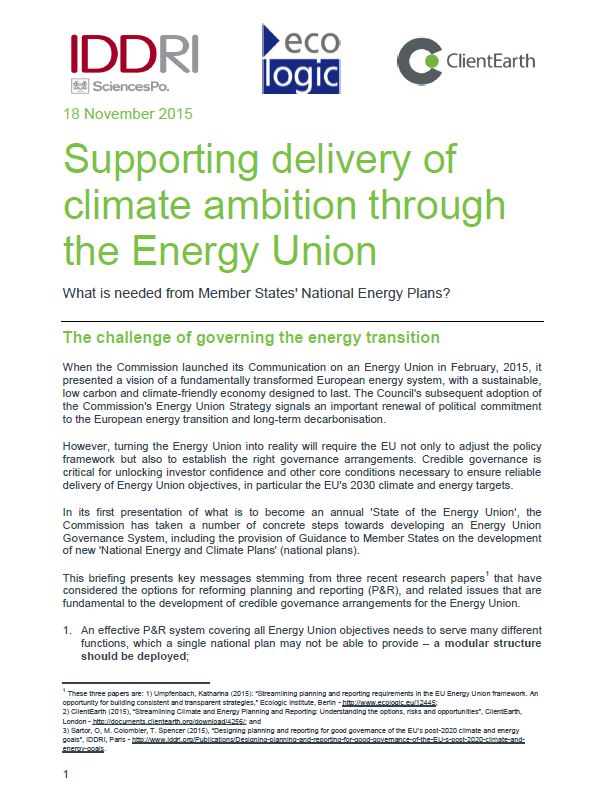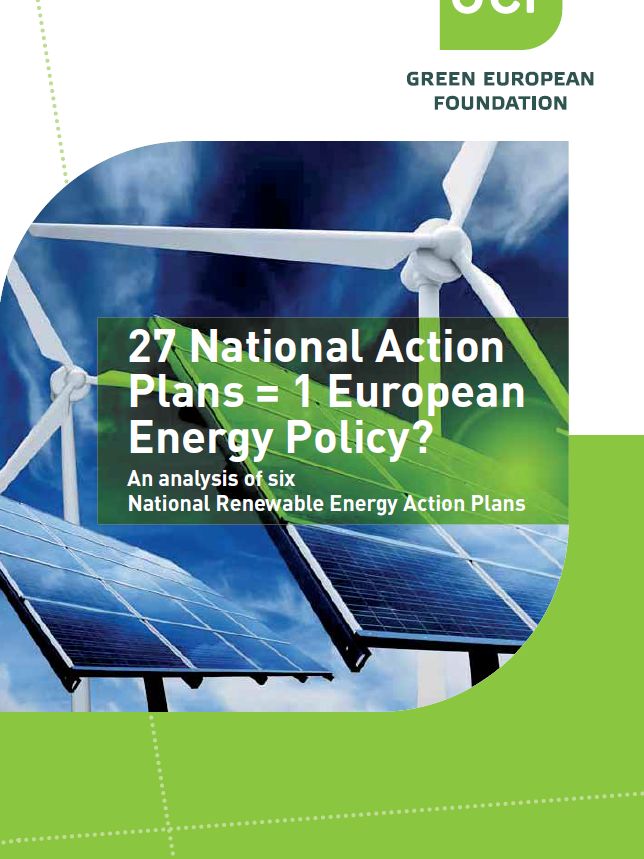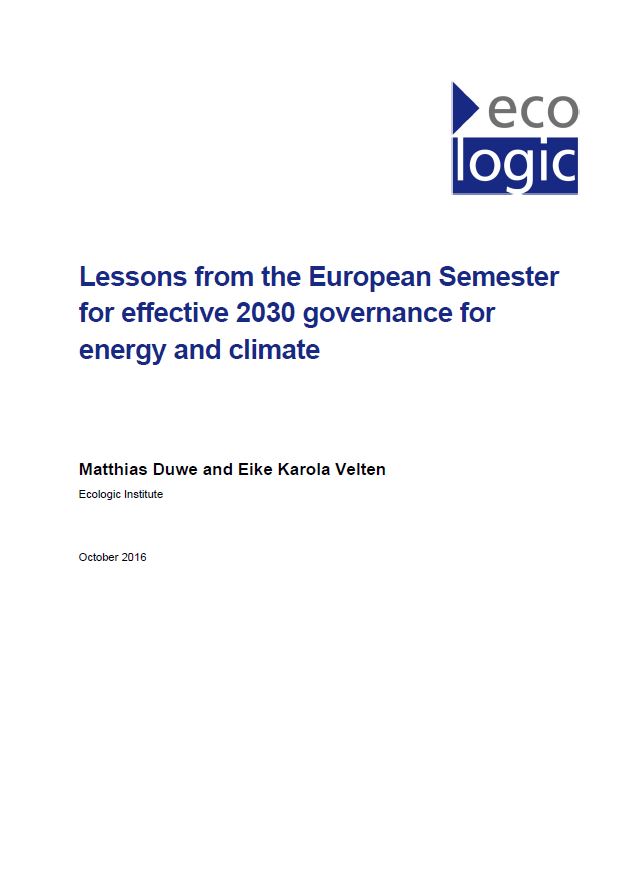
Stakeholder Exclusion Likely? Public Participation under the Governance Regulation
An Assessment of Article 10 in the light of the Aarhus Convention
- Publication
- Citation
Stockhaus, Heidi (2018): Stakeholder exclusion likely? Public Participation under the Governance Regulation. Ecologic Institute: Berlin.
The Commission's proposal for Article 10 of the Regulation for the Governance of the Energy Union (GReg) and the related positions of the Council and the Parliament are currently being negotiated. In this report Ecologic Institute's Dr. Heidi Stockhaus analyses the proposals in the light of the EU’s obligations under the Aarhus Convention and highlights the shortcomings that need to be addressed.
The European Union has been found in violation of Article 7 AC before by the Compliance Committee of the Aarhus Convention (ACCC) in regard to National Renewable Energy Action Plans (NREAPs) under Directive 2009/28/EC. In its findings the ACCC clarified the requirements of the EU when implementing the Aarhus Convention.
Notwithstanding, the Commission's proposal did not follow these findings.
This report’s analysis of the Commission's proposal for Article 10 of the Regulation for the Governance of the Energy Union (GReg) of November 2016 details the following gaps:
- Scope of application: The scope of application is limited to National Energy and Climate Plans (NECPs) and does not apply to Long-term Strategies (LTs).
- Early participation: It is not guaranteed that stakeholders can participate early on, when all options are still open.
- Standards for participation: The provision fails to reference the various Aarhus Convention standards for public participation (transparency, sufficient time for consultation and consideration of the views expressed in decision making).
The Council’s position of December 2017 is equally non-compliant with the Aarhus Convention and even increases the risk further. Specifically, it would allow Member States to only organise public participation before the adoption of the final plan, when the number of available options has already been narrowed down and the possibility of the public to influence the NECP drafting is therefore limited.
Improvements to Article 10 GReg are necessary and possible – they could follow the proposals made by the European Parliament in January 2018. This includes broadening the scope of application from NECPs to NECPs and LTSs, as well as requiring transparency of information and sufficient time for consultations. Beyond the Parliament’s proposals, it is necessary to require that Member States to take the outcomes of the participation process into consideration.







